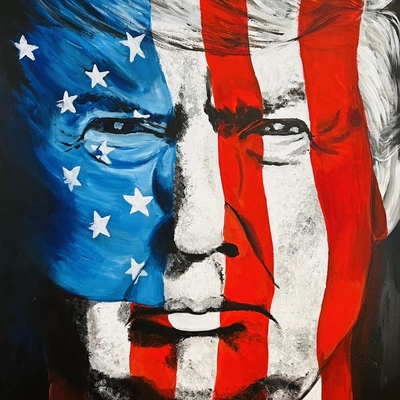Stay informed on the latest Truth Social posts from Donald Trump (@realDonaldTrump) without the doomscrolling. Consider it a public service for your mental health. (Why?)
- Democrats want to give healthcare money to illegal aliens.
- Democrats want to open borders to the criminals of the world.
- This combination is deadly.
- Open borders will cause everybody to come.
The post addresses domestic policy issues, specifically healthcare funding and border security. While these topics can have long-term economic implications, the post's content is broad and rhetorical, lacking specific policy proposals, company mentions, or economic data points that would trigger an immediate or significant reaction in the S&P 500 index. It primarily serves as a political campaign statement.
The post discusses immigration policy and border control, asserting that opening borders would attract 'criminals of the world.' While this implies cross-border movement, it does not directly reference international state-on-state conflict, military actions, or ultimatums that would escalate geopolitical tensions between sovereign nations. The focus remains on domestic impact and internal security.
- Commodities: The post does not contain specific information that would directly impact commodity prices like Gold (XAU), Oil (WTI), Silver, or Copper. There are no mentions of geopolitical supply shocks, inflation drivers, or industrial demand changes. Short-term and medium-term outlooks for commodities are unlikely to be influenced by this post.
- Currencies (Forex): The post's focus on domestic policy and immigration is unlikely to cause immediate or significant shifts in the US Dollar Index (DXY) or major currency pairs like USDJPY, EURUSD, or USDCNH. While political rhetoric can influence sentiment over time, this specific statement lacks the direct policy or economic catalysts to trigger short-term forex market reactions. Medium-term implications depend on broader policy developments, not this single post.
- Global Equities: The post's domestic political nature does not provide direct drivers for global equity markets such as the S&P 500, Nasdaq, STOXX 600, Nikkei 225, or Hang Seng. It does not mention specific companies, sectors, or economic policies that would lead to immediate shifts in risk tone or capital flows. Global equities are unlikely to show a distinct reaction based solely on this statement.
- Fixed Income (Bonds): The post does not contain information relevant to US Treasury yields (10Y, 2Y), flight-to-safety dynamics, or credit spreads. It does not touch upon monetary policy, fiscal spending beyond general 'healthcare money,' or debt ceiling concerns directly. Bond markets are unlikely to react to this general political statement.
- Volatility / Derivatives: The post is not expected to cause a spike or compression in the VIX index or trigger significant gamma risk in options markets. It does not present novel systemic risks or immediate policy changes that would lead to increased market uncertainty or volatility. Short-term and medium-term volatility indicators are not likely to be impacted.
- Crypto / Digital Assets: The post lacks any direct relevance to Bitcoin (BTC), other cryptocurrencies, or the broader digital asset market. It does not discuss regulatory frameworks, technological developments, or macro liquidity conditions that typically influence crypto valuations. No immediate impact is expected.
- Cross-Asset Correlations and Systemic Risk: The content of the post is not significant enough to cause breakdowns in typical cross-asset correlations, trigger margin calls, or signal broader systemic liquidity stress. Market plumbing and central bank intervention drivers are not addressed. No significant systemic risk is indicated.
- Retail Sentiment / Market Psychology: While originating from a prominent political figure, the post is unlikely to directly trigger retail speculation in specific meme stocks, altcoins, or coordinated trading pushes. Its focus is political commentary rather than market-moving information that would mobilize retail trading communities. Social media trends may reflect political discussion, but not market-specific sentiment.

